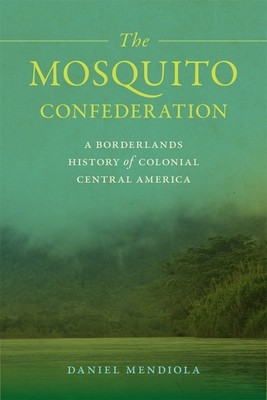
- We will send in 10–14 business days.
- Author: Daniel Mendiola
- Publisher: University of Georgia Press
- ISBN-10: 0820369640
- ISBN-13: 9780820369648
- Format: 15.2 x 22.9 x 1.9 cm, kieti viršeliai
- Language: English
- SAVE -10% with code: EXTRA
Reviews
Description
The Mosquito Confederation is the first historical monograph to offer a thorough, chronological narrative of the rise and decline of the Mosquito Confederation: a powerful alliance of Amerindian and African-descended peoples which dominated much of Central America's Caribbean coast throughout the eighteenth century.
This study addresses a straightforward set of questions: Who were the principal actors facilitating Mosquito expansion? What specific practices did they implement? And how did these processes shape the competing Spanish and English conquests in the region? The specific answers to these questions vary over place and time, yet the overarching argument is that the rise and decline of the Mosquito Confederation--a process that depended far more on the novel practices of Mosquito leaders than on outside, colonial influences--was the driving force shaping imperial outcomes in the region. This research derives from a substantial body of previously uncited sources, especially from the National Archive of Costa Rica. Since Mosquito fleets routinely stopped in Costa Rican ports to trade and gather supplies, the Costa Rican archival record is both uniquely large and uniquely insightful. These sources fill critical gaps in Mosquito history, especially in the first half of the century, making it possible for the first time to write a chronological narrative of contextualized events throughout the century.EXTRA 10 % discount with code: EXTRA
The promotion ends in 23d.09:03:29
The discount code is valid when purchasing from 10 €. Discounts do not stack.
- Author: Daniel Mendiola
- Publisher: University of Georgia Press
- ISBN-10: 0820369640
- ISBN-13: 9780820369648
- Format: 15.2 x 22.9 x 1.9 cm, kieti viršeliai
- Language: English English
The Mosquito Confederation is the first historical monograph to offer a thorough, chronological narrative of the rise and decline of the Mosquito Confederation: a powerful alliance of Amerindian and African-descended peoples which dominated much of Central America's Caribbean coast throughout the eighteenth century.
This study addresses a straightforward set of questions: Who were the principal actors facilitating Mosquito expansion? What specific practices did they implement? And how did these processes shape the competing Spanish and English conquests in the region? The specific answers to these questions vary over place and time, yet the overarching argument is that the rise and decline of the Mosquito Confederation--a process that depended far more on the novel practices of Mosquito leaders than on outside, colonial influences--was the driving force shaping imperial outcomes in the region. This research derives from a substantial body of previously uncited sources, especially from the National Archive of Costa Rica. Since Mosquito fleets routinely stopped in Costa Rican ports to trade and gather supplies, the Costa Rican archival record is both uniquely large and uniquely insightful. These sources fill critical gaps in Mosquito history, especially in the first half of the century, making it possible for the first time to write a chronological narrative of contextualized events throughout the century.

Reviews